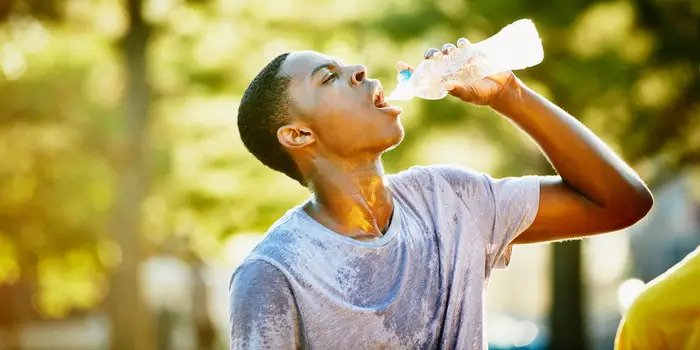Spotting Dehydration: Common Signs and Symptoms
Introduction
Dehydration occurs when the body loses more fluid than it takes in, leading to an imbalance in the body’s electrolytes. It is a common condition that can affect people of all ages, but it is especially prevalent in hot climates or during intense physical activity. Recognizing the signs and symptoms of dehydration is essential to prevent complications and provide timely treatment.
Common Signs of Dehydration
Dehydration can manifest in various ways, and it is important to be aware of the following common signs:
Dry Mouth and Thirst
One of the first signs of dehydration is a dry mouth and an increased sensation of thirst. When the body lacks water, it tries to conserve it by reducing saliva production, leaving your mouth feeling dry.
Decreased Urination
If you notice a significant decrease in your frequency of urination or your urine appears dark yellow, it may be an indication that you are dehydrated.
Dizziness and Fatigue
Dehydration can cause dizziness, lightheadedness, and fatigue. When your body lacks fluids, your blood pressure can drop, and inadequate blood flow to the brain can result in feelings of dizziness and weakness.
Headaches
Frequent headaches are a common symptom of dehydration. When the body is dehydrated, it can affect the brain’s proper functioning, leading to headaches or even migraines.
Dry Skin
In cases of dehydration, the skin may appear dry, flaky, or less elastic than normal. Lack of proper hydration can lead to reduced skin turgor, making it less capable of bouncing back when pinched.
Muscle Cramps
Dehydration can also cause muscle cramps. When the body lacks water and essential electrolytes like sodium and potassium, muscle contractions become more prone to spasms and cramps.
Symptoms of Severe Dehydration
If dehydration is not promptly resolved, it can lead to severe complications. The following symptoms indicate severe dehydration and require immediate medical attention:
Extreme Thirst
A constant feeling of extreme thirst, even after drinking fluids, may indicate severe dehydration.
Rapid Heartbeat and Breathing
Severe dehydration can elevate heart rate and cause rapid, shallow breathing. This happens when your body tries to compensate for the lack of fluids and maintain adequate circulation.
Fainting or Loss of Consciousness
If dehydration progresses to a severe stage, it may result in dizziness, fainting, or loss of consciousness. These symptoms require immediate medical attention.
Confusion and Irritability
Dehydration affects the body’s ability to function properly, including the brain. Severe dehydration can lead to confusion, irritability, or even delirium.
Sunken Eyes
n severe cases of dehydration, a person’s eyes may appear sunken due to the loss of fluid in the body.
Preventing and Treating Dehydration
To prevent dehydration, it is important to:
-
- Drink an adequate amount of water throughout the day, especially in hot weather or during physical activity.
-
- Avoid excessive consumption of diuretic substances such as alcohol and caffeine, which can increase fluid loss.
-
- Eat fruits and vegetables with high water content to supplement hydration.
-
- Wear lightweight and breathable clothing in hot and humid conditions.
If you suspect dehydration, it is crucial to restore fluids as soon as possible. Treatment may involve:
-
- Drinking water or oral rehydration solutions that contain electrolytes to replenish lost fluids and essential minerals.
-
- Seeking shade and resting in a cool environment if dehydration is due to excessive heat exposure.
-
- Receiving intravenous (IV) fluids in severe cases of dehydration, which may require medical intervention.
FAQs
Q: How much water should I drink daily to prevent dehydration?
A: The recommended daily water intake varies depending on factors such as age, sex, and physical activity level. As a general guideline, it is advisable for adults to consume at least 8 cups (64 ounces) of water per day.
Q: Can dehydration affect cognitive function?
A: Yes, dehydration can negatively impact cognitive function, leading to difficulties in concentration, memory, and overall mental performance.
Q: Are children more susceptible to dehydration?
A: Yes, children are more vulnerable to dehydration due to their smaller body size and higher water requirements relative to their weight. Caregivers should pay extra attention to ensure children stay adequately hydrated, especially during physical activities.
Q: When should I seek medical help for dehydration?
A: If you experience symptoms of severe dehydration, such as fainting, confusion, rapid heartbeat, or loss of consciousness, seek immediate medical attention. It is better to be safe and receive timely treatment.

